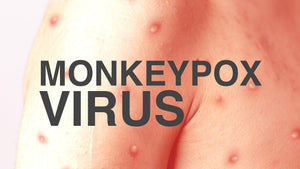
These Factors Determine How Fast Your Wound Will Heal
Wounds, small or big, are almost second nature to our daily lives. Scrapes, scratches, gashes – they occur way too frequently for our liking. Discovery of these injuries also may not be immediate; sometimes it takes someone else to point it out, and sometimes the wound becomes painful, immediately calling for your attention. The process of healing involves 4 key stages that often overlap with each other: hemostasis, inflammatory, proliferative, and maturation. Healing of the wound is a fascinating phenomenon, with millions of tiny blood vessels producing new capillaries to repair the broken ones. In this process, wound edges are pulled together to form the collagen. This entire process needs to be left uninterrupted, for any disturbance can even lead to infections. You want the wound to heal quickly, know that these factors determine how quickly that happens:
First Response: One of the most important steps, the first remedy provided to the wound can play an important role in its recovery. From the anti-bacterial cleaning to the wound dressing, and even the suture used to stitch it up – these can set the length for the road to recovery. Ensure you have the medications and equipment at home; you can even buy suture online if you’re well-trained to use it at home. A quick, effective dressing packs the wound and makes sure it is set to be treated properly.
Infection: Infections keep the healing process in the inflammatory phase. Many times it leads to more itchiness and pain at the wound site. Pathogenic agents at the wound site can create necrosis in the wound bed which can even lead to serious issues if not treated at the right time. If suffering from an infection, a 3M Micropore tape can be a perfect solution, allowing skin breathability and protection from unwanted sources at the same time. You can check out 3M micropore tape price at Smart Medical Buyer.
Medication: Using the right medication is imperative to the wound healing process. Be in touch with your doctor for the same since different medications are recommended when you are at different stages of healing. Dosage of anti-inflammatory drugs like steroids and non-steroid should be reduced once the wound is completely healed.
Ailments, If Any: Any health concerns of the patient will have a direct impact on the wound healing process. If you are suffering from diabetes or any other chronic disease such as anemia or autoimmune disorder, then the healing period would be longer than average. Chronic illnesses affect the blood flow, which can then lead to an insufficient amount of oxygen reaching the tissues, thus dampening the healing process. In such cases, the patient should be in daily touch with the physician for a smooth, speedy recovery.







